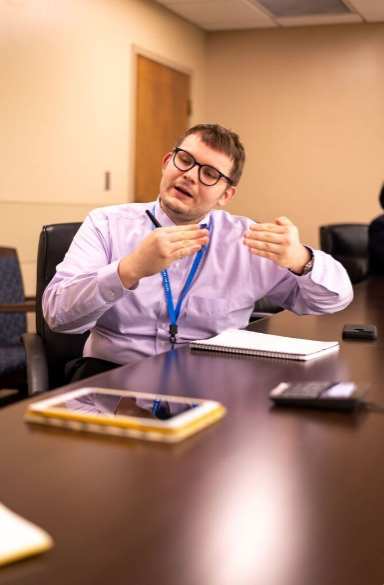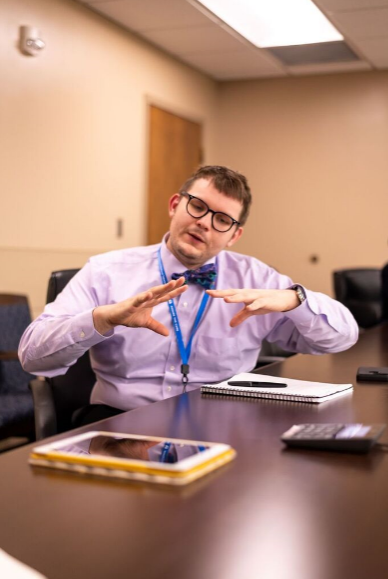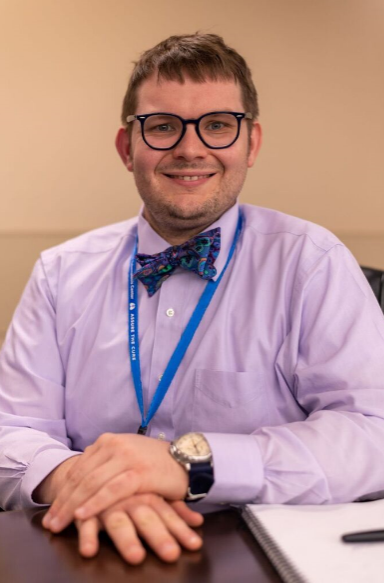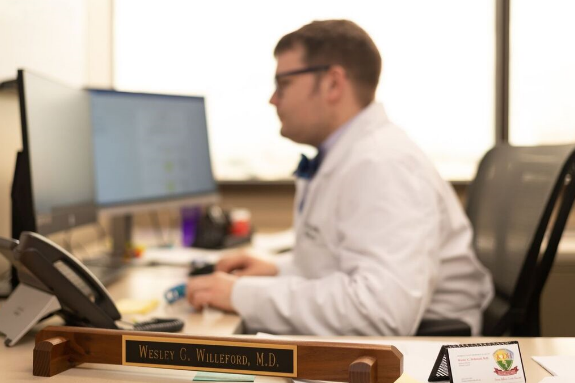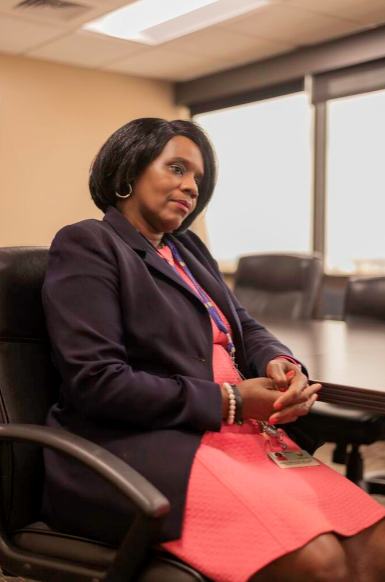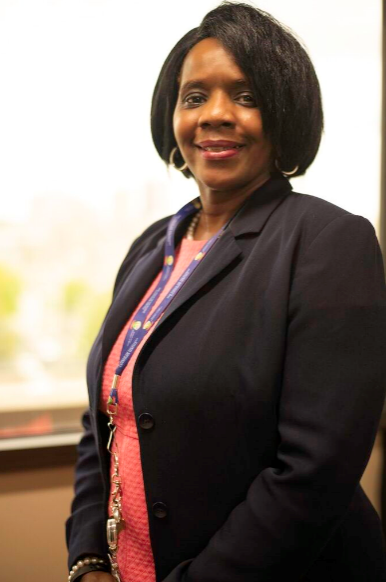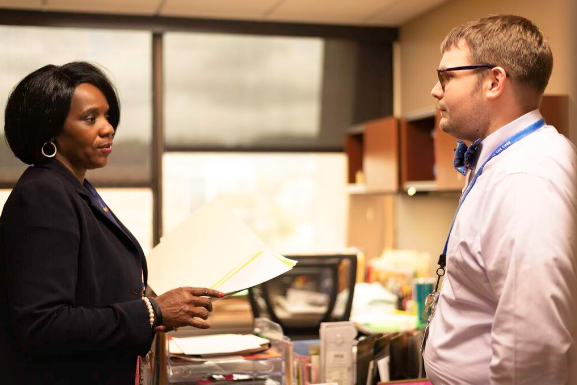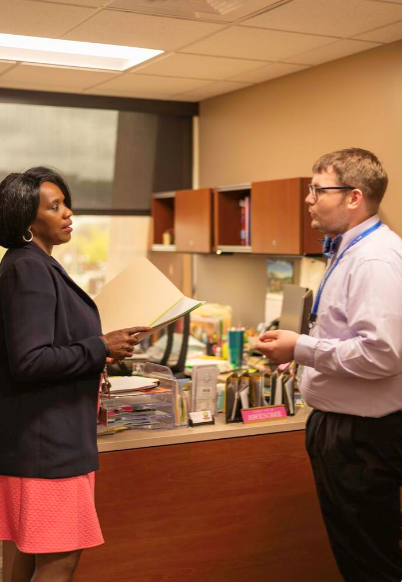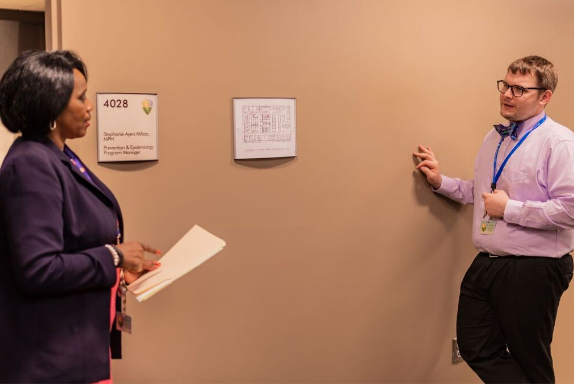
By Erica Wright
The Birmingham Times
Like many in Jefferson County, Wesley G. Willeford, MD, finds himself exercising health and safety precautions he never imagined.
“I have only two destinations right now—home and work,” he said. “Those are the only places I’m going, and that’s what I encourage people to do.”
Willeford, medical director of Disease Control with the Jefferson County Department of Health (JCDH), can often be seen at press conferences giving updates on COVID-19, and he knows the importance of encouraging the public to be mindful of health safety while he lives it.
“I spend some time in my yard away from people, but I don’t go out anymore because I’m trying to protect myself,” he said. “I still have to go to work. We’re trying to protect the county, and I’m glad to do that. For everyone else who is able to stay at home, we really encourage you to limit those activities because each time you come in contact with another person is a chance that could lead to illness.”
The JCDH Disease Control team works to track diseases in the county, including sexually transmitted infections (STIs), tuberculosis, and a host of other diseases that are reported to the Alabama Department of Public Health. Currently, the team is working to contain the coronavirus disease spread and monitoring for trends in disease that can be suggestive of new outbreaks.
Taking Precautions
Willeford is not the only person at JCDH Disease Control who is taking precautions. Stephanie Ayers-Millsap, MPH, Disease Intervention Program Manager at JCDH, said she “practices what she preaches” with social distancing and by being mindful of her environment.
“I have not been attending organizations and meetings that I would have,” she said. “When I’m in the store, I try not to be close to the person in front of me, … and I try to make sure I wipe things down like we want the public to do. I tell the same things to my family—[I tell my husband and five children], those who are in my household, … about hand-washing and sanitizing more than usual. For family that is not with me, I tell them the same things: practice social distancing, don’t go to meetings and things if you don’t have to.”
In the last two months, coronavirus, the virus that causes COVID-19, has gone from a small outbreak to a worldwide pandemic. Within just a few weeks, the state of Alabama went from having no cases detected to 1,000 confirmed, including nearly 285 in Jefferson County as of Tuesday, March 31.
Willeford, Ayers-Millsap, and other JCDH Disease Control team members are on the front lines in Jefferson County helping to reduce the spread of COVID-19.
Willeford said he has learned some new things about the virus, such as how early on “the estimates had shown that it was a little bit on par with the flu as far as how easy it is to transmit from one person to the next, but it turns out that it’s much easier to transmit than the flu. That’s why we’ve seen such a large spread across the world.”
It is also difficult to pin down who the virus affects, he said.
“A few broad generalizations are that people who are older, people with chronic health conditions, people with immune systems that may not be as strong aren’t going to do as well and are most vulnerable to the virus. The biggest thing that has been underplayed and caused a false sense of security is [the belief] that younger people can’t get it—they can. … It can send young people to the hospital and to the grave.”
Willeford said the virus can live on surfaces longer than first presumed, anywhere from 48 to 72 hours.
“This really drives home that point of keeping surface areas clean,” he said. “That’s what we have to do at home, especially if someone is sick. If you come in from outdoors, wash your hands because soap and water, disinfectants, and household cleaners will kill this virus.”
Testing and Following Up
JCDH Disease Control is partnering with area hospitals to get as many testing sites open as possible in different parts of the county, Willeford said.
“We want to be able to get these answers and help people as much as possible,” he said.
If a test comes back positive and the state health department is notified, that is where Millsap and her team come in.
“We follow up on all positive cases by calling the individual and giving them information about the disease and how to protect themselves, their close contacts, and their households, as well as those who might not be close contacts.”
Millsap and her team of about 10 to 12 people can pull from other departments in emergencies like the coronavirus pandemic and make recommendations on what to do to best protect individuals who have been found positive or have come in close contact to those exposed to the illness.
“We tell those individuals to isolate themselves,” she said. “Other individuals who’ve had less exposure than those individuals might need to just monitor their health.”
As expected, the volume of calls to JCDH Disease Control has increased as a result of the coronavirus, so resources have been relocated and redistributed to handle the regular workload related to other diseases like hepatitis, salmonella, STIs, and tuberculosis.
“Some of our clinic staff have been reassigned, and they will help where it’s needed,” Millsap said. “Just because we have COVID-19, other diseases have not stopped. The entire department is combatting this. … Everyone has a role in times like these.”
Click one of the links below to read more COVID-19 related stories.
Jeffco Extends Closure of Courthouses, Allocates $1M to Coronavirus Relief
Cooper Green Mercy adds telehealth services during COVID-19
What PPE donations UAB is accepting and new collection processes
UAB will test a COVID-19 vaccine candidate created by Altimmune Inc.
Alabama tightens public restrictions to slow spread of COVID-19
CAP to continue downtown Birmingham patrol with COVID-19 shelter in place
State leaders: Alabama K-12 schools closed for rest of semester



